Do you ever feel like everything is going wrong?
Or the world can be too much, and it's easier to crawl into bed and hide?
Do you feel overwhelmed, anxious, self-doubt, frustration, regret, shame, guilt, or unhappy?
It's likely due to the mindset you're in right now.
First off, what is a mindset?
Oxford Dictionary describes mindset as:
"A set of attitudes or fixed ideas that somebody has and that are often difficult to change."
From my experience, the ones of my clients, and many coaching clients worldwide, mindsets can be difficult to change, but they don't have to be.
And they're worth changing because our mindsets impact how we see and operate the world.
Here's a graphic that describes how our mindsets impact our world:
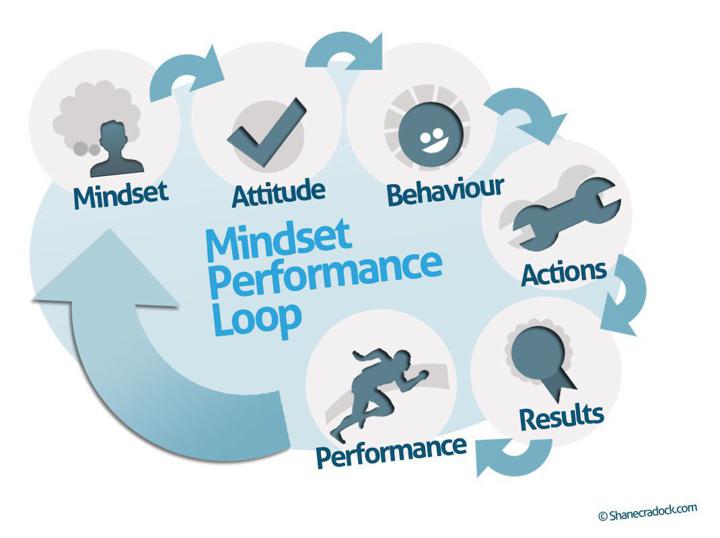
Mindset impacts literally everything from how we see the world to how we operate in it. Isn’t it worth it to get it right?
Types of mindsets
Before we jump into mastering your mindset, it's helpful to understand that there is such a thing.
Whether you're familiar with the concept or not, some popular mindsets are based on research that people inhabit consciously or unconsciously.
“Until you make the unconscious conscious, it will direct your life and you will call it fate.” ― C.G. Jung
With that said, let's talk about the various mindsets. There are SO many books and many that cover mindset as a focus, and some that have it as just an element of it (often a foundational element).
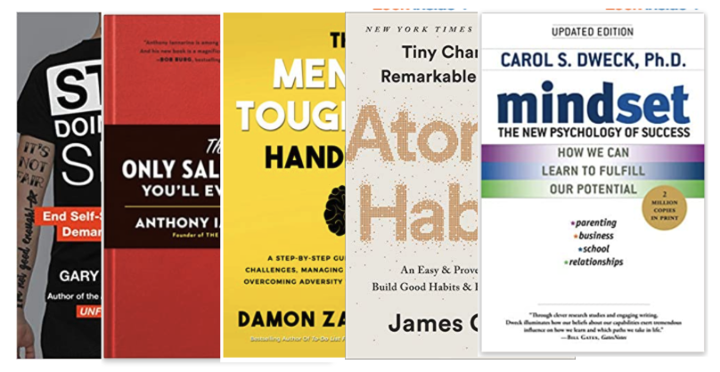
Below are three types of popular mindsets worth knowing:
Growth vs. Fixed Mindset:
Carol Dweck popularized this mindset in her book Mindset: The New Psychology for Success.
In her research, she examined mindsets among young students. She found that children with a "growth mindset" believe that intelligence can be developed and are better able to overcome academic challenges than those with a "fixed mindset" that intelligence is predetermined.
Whichever mindset you have, it will dictate how you show up in the world every day.
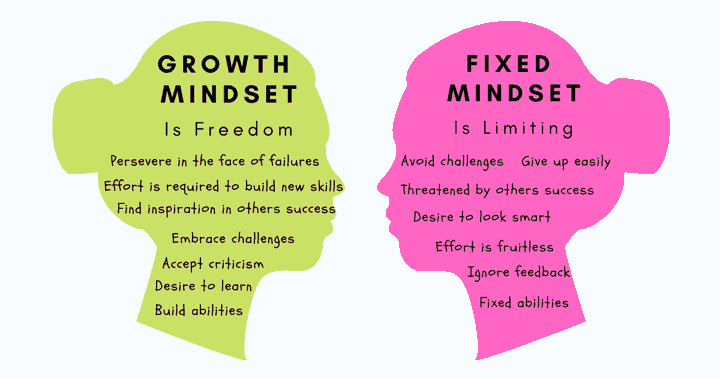
And common phrases people will say or think when they're in each brain.
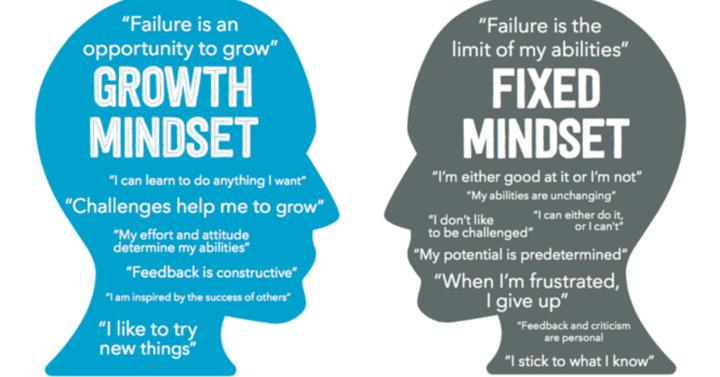
Scarcity vs. Abundance Mindset:
First coined by Stephen Covey in his book, "The 7 Habits of Highly Effective People," scarcity mentality refers to people seeing life as a finite pie, so that if one person takes a big piece, that leaves less for everyone else.
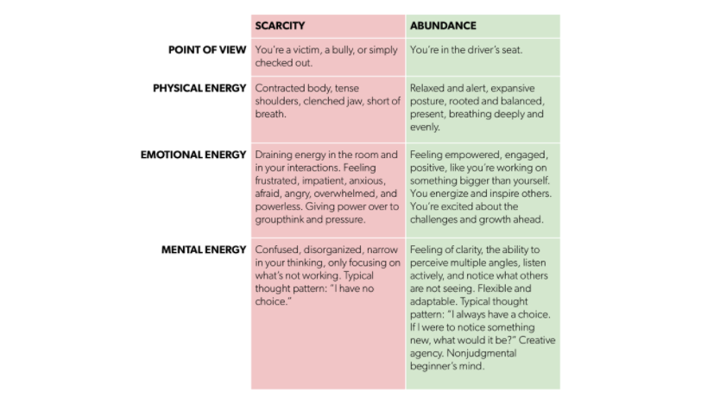
Jessica DW provides several real-world examples of both in her recent piece on shifting from a scarcity to an abundance mindset:
When you get the email from the recruiter letting you know they’re moving on to other candidates, scarcity says, “I didn’t get this job, I’m not good enough, I will never get a job!” While abundance says, “That wasn’t the right fit for me. My dream job is still out there waiting for me. I’ll keep looking.”
Do you know someone who is in a scarcity mindset? What are their beliefs? How do they hold their body? How does this mindset impact their decisions and actions?
Saboteur vs. Sage Mindset:
Brought to life by the neuroscience research of Shirzad Chamine, the saboteur and sage is the third powerful framework for mindsets.
According to Shirzad,
Saboteurs react to challenges in ways that generate negative emotions such as stress, disappointment, self-doubt, regret, anger, shame, guilt, or worry. Your sage handles challenges through positive emotions like empathy, gratitude, curiosity, self-confidence, and calm, clear-headed, laser-focused action.
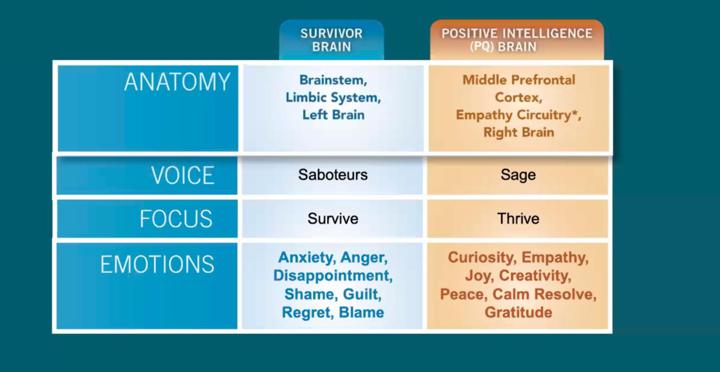
Do you know someone who lives in the saboteur mindset? How does it change how they experience the world How does this impact what they do, or don't do, in life?
After reading these six different mindsets, I think we can all agree which ones are better than others.
"The mind is everything, what you think, you become." - Buddha
How to master your mindset [10 steps]
1. Upgrade your beliefs
Fill in these sentences:
- Working out is ________.
- Finances are ________.
- Relationships are ________.
- Politics are ________.
- Work is ________.
- The world is ________.
- People are ________.
- I am __________.
- The meaning of life is __________.
👆These are your beliefs.
Some of what you put down might be expansive, life-opening, opportunity-generating, and others might be limiting. They're limiting because they aren't serving you to live a full life of happiness, fulfillment, success, and whatever else you want.
Examples of limiting beliefs include:
- I'm not creative
- I'm not good at writing.
- The world is a scary place.
- People are generally selfish.
- I'm bad in social situations.
- I'm an introvert (more on the limiting nature of seemingly helpful labels here)
- I'm not good enough.
If your beliefs hold you back, I highly recommend reading this piece I wrote What are Self-Limiting Beliefs [& How They're Impacting the Quality of Your Life].
"Whether you think you can, or you think you can't – you're right," emphasizes how much attitude determines success or failure." - Henry Ford
2. Learn your saboteurs/inner-critic voice & notice when it's hijacking you.
Maybe you've never heard of these terms before, but you certainly know what they represent: the absolute monster in your mind. It's the voice inside your head that can be mean, belittling, superior, or negatively sarcastic. It can judge us, criticize us, and demean ourselves, others, and situations.
The voice inside your head causes you to deflate, shrink. Your body feels it and shows it (our body keeps the score of what we're feeling). It shrinks the box of what we're capable of. When this voice is louder than our wiser sage brain, it prevents us from trying new things, taking risks of ambition, being happy, and ultimately enjoying life. It's the thief of joy. It prevents us from living a life we truly want because it robs us of our enjoyment of experiencing life fully.
Newsflash, this voice isn't you.
You are not your thoughts.
To realize that you are not your thoughts is when you begin to awaken spiritually —Eckhart Tolle
This goes against everything we've been conditioned to believe. If we are not our thoughts, then who are we? More on that in a bit.
In "The Power of Now," Eckhart Tolle said this about our minds:
"The mind is a superb instrument if used rightly. Used wrongly, however, it becomes very destructive. To put it more accurately, it is not so much that you use your mind wrongly — you usually don't use it at all. It uses you. This is the disease. You believe that you are your mind. This is the delusion. The instrument has taken you over."
Our saboteurs, inner critic, or gremlin result from when our negative brain takes over our thinking, being, actions, and ultimately us.
Learning to identify my saboteurs and bring awareness to when they hijack my mind has been one of the most powerful tools I've practiced to take back control of my life.
My saboteurs and inner critics once had a microphone, and while they're still there, they're now whispers. What a load off, and my life is exponentially more extraordinary.
Once I learned to silence them and bring in my Sage, not much changed in my life, but I felt different. Then I started taking new, exciting risks. After five months, I got engaged to my partner, left a job that was "great on paper," started a software company, and now am creating my own coaching business to make the power of coaching accessible to everyone.
There are many terms (saboteur/inner critic/gremlin) to explain and help you explore this concept. They are all about changing your thought patterns.
Explore the different types of saboteurs:
- Taming Your Gremlin [book link with affiliate link]
- Saboteurs Assessment [graphic below highlights the types of saboteurs]
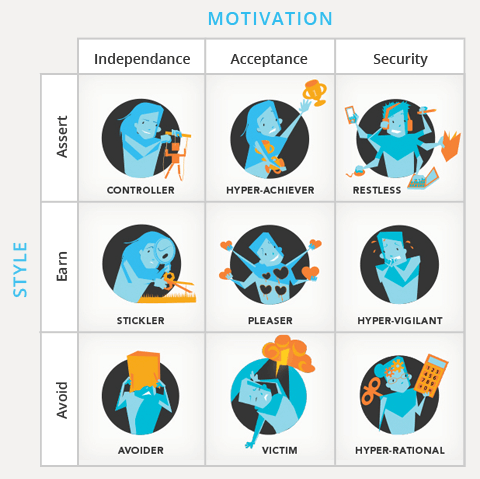
3. Engage your SAGE
If your saboteur is your inner critic, your SAGE is your inner coach, champion, and highest self.
It's your wise brain, and it's the part of you that wants what's best for you. What's best isn't always easy, and the SAGE brain knows that.
Research shows the SAGE brain lives in a completely different part of your brain as well. Whereas the saboteur's brain lives in your reptilian brain, aka your limbic system, its sole focus is on survival. The sage part of your brain is in your middle prefrontal cortex, and its focus is on thriving.

We all have the SAGE inside of us.
We've all experienced moments where the SAGE was present.
Here are two ways to find it:
- Think back to a time in life when you were in your full power. You were in the zone, alive, and your body was tingling with energy? What was it? Who was there? Experience the situation like you were there now.
- Journal on this question: Who are you when you're at your best?
This is your SAGE brain; it is your true original self. And fortunately, you can bring back the SAGE'S presence in your life with practice.
For some of us, it can be as simple as focusing on what's going well and what you're grateful for.
Shirzad Chamine said this in a Stanford article:
"Rather than picking apart every mistake you make and every shortcoming you find in the people around you, your inner Sage instead tries to see the positive in every negative."
This shift happened when I was running at the gym at 6:30am on a Tuesday. I was training for a half marathon, and I noticed I was more tired than usual, and was royally pissed off at myself for being so slow considering how far I was into training.
And then the words of my coach popped into my head, "Focus on what's going well!"
So I tried shifting. I realized that I was at the gym at 6:30am on a Tuesday, when most people were still sleeping. I was also already five weeks into training for a half marathon and how many people do that? I was running slower because I just hadn't adjusted the speed to be faster yet! After that shift, I finished my run with more energy than when I started.
That was when it first clicked for me. Now I live most of my life in my SAGE brain, and it is the most beautiful place in the world to be. Trust me, all the effort and practice is WORTH IT!
However, some saboteurs are more sophisticated and sneaky than just changing your focus from what's going wrong to what's going well, and they're what make us controlling, people-pleasers, sticklers, victims, avoidant, and more [take PQ saboteur assessment to find them].
Chamine introduced the SAGE's five superpowers in his Positive Intelligence (PQ) course. The five superpowers are:
- Activate
- Empathize
- Explore
- Navigate
- Innovate
Personally, I engage the empathize SAGE superpower than others. When someone is distant, mean, or unnecessarily angry, I recognize that they too have a history that could have lead to the mindset they're in right now.
If you want to strengthen your SAGE brain, I recommend reading Positive Intelligence by Shirzad Chamine [affiliate link].
[I capitalize SAGE because it's that important that it deserves that level of acknowledgement and honor.]
4. Introduce better self-talk
Take a moment to write your negative self-talk's greatest hits.
What do they say to you?
For example sake, maybe they say:
- "You're going to screw it up."
- "You're going to sound aggressive, demanding, and ungrateful if you ask for that."
- "You aren't likable."
Now use one of the activities above from the SAGE section, and then write your retorts from a better, more expansive place.
- From "You're going to screw it up" to "Screwing it up means I'm trying, and by trying, I'll learn how to get better."
- From "You're going to sound aggressive, demanding, and ungrateful if you ask for that." to "I'd rather set a boundary on this, and if they think I'm demanding and aggressive for asking for what I need, it's on them, not me."
- From "You aren't lovable." to "If they don't like me, then they're not my people, and that's okay."
5. Watch what you consume
Just as your food diet is essential to your physical health and impacts your energy levels and how you feel, the food you feed your mind does the same to your health.
Alex Moneton explained it this way in a recent newsletter:
"Your output will only be as good as your input. Think of it like a digestive tract. If you consume junk, you'll produce junk. News, subscriptions, feeds, podcasts, "following "-s - whatever you read/listen to must be good."
This includes surrounding yourself with the people who have the mindsets you want as well.
Feed your mind high-quality nutritious food.
6. Ask yourself better questions
"The quality of your life is a direct reflection of the quality of the questions you are asking yourself." ― Anthony Robbins.
We're not taught to ask ourselves the right questions. Often when we're in a negative spiral, the questions sound like "Why am I…" and many other "why" questions.
Change the questions you ask yourself.
- Instead of "Who am I?" ask yourself, "How do I want to experience my life?"
- Instead of "Why am I bad at taking action?" ask yourself, "What do I need to take action?"
- Instead of "Why do I flip flop with big decisions?" Ask yourself, "What do I need to make big decisions better?"
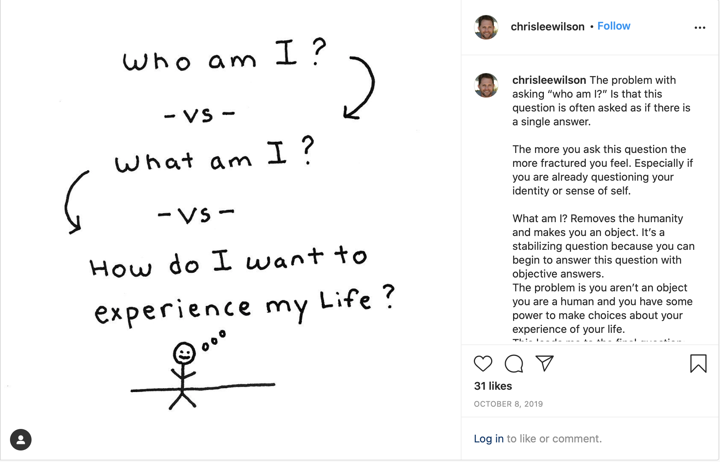
7. Meditate
There's a bounty of information on the benefits of mediation in every part of our life, and I won't go into it here.
For our mindset specifically, meditating helps us to become an observer of our thoughts. When we observe them as we would clouds passing in the sky, we can better detach from their grips.
"Thoughts are behaviors we haven't learned to observe yet." — B.F. Skinner
Meditating allows you to better notice your inner critic and shift your perspective.
And meditating doesn't have to be about finding a quiet space and sitting on the floor for at least five minutes. In this context, it's better to activate that part of your brain in the middle of a war, meaning in stressful situations where tension is high, like in traffic, in a meeting before you present, or wherever else you notice your saboteur would kick in.
By practicing these skills in stressful situations, you're able to take back the reigns from a typical saboteur hijacking and bring them back to the very present moment.
Again, Shirzad Chamine provides very simple and quick meditation practices you can do in 10 seconds or less:
Slowly rub your index finger against your thumb so that you can feel the individual ridges of your fingerprint.
Try it for 10 seconds at a time. Focus on the sensation, and it will help ground you and break a negative thought cycle.
8. Engage your Appreciator Ally
"The obstacle in the path becomes the path. Never forget, within every obstacle is an opportunity to improve our condition." - Ryan Holiday "The Obstacle is the Way."
In my Co-Active Coach training, they teach us how to cultivate our Appreciator Ally. That's the part of ourselves that can appreciate what is good about any situation, even in circumstances where it feels as if there is very little that is good about the situation. Our most profound learning happens when we can activate our Appreciator.
Some things are easier to appreciate than others. Like weights in the gym, some situations are lighter to lift, and others heavier.
Engage your Appreciator Ally right now: what's something in life that seemed terrible at first but brought you to where you are today.
Did you get fired, but it brought you to find the job of your dreams? Did you have a bad break-up, but it taught you to love yourself, and you ended up finding your life partner next? Did you lose a family member to a disease, and as a result begin an annual donation drive to support finding a cure?
What's something you can be grateful for because it brought you to where you are today?
In challenging situations, it can be hard to find the Appreciator Ally, especially at the moment. But, there is always something to appreciate about any situation, and it often requires some deep digging.
Your Appreciator still has a gift to offer, if you are open to looking for it and receiving it.
9. Coaching
If you know me, this is the drum I beat the most.
When I was stuck in a very negative mindset, I read countless books, blogs, talked to friends, and sought out a therapist's help.
However, the only thing that actually helped was working with a coach. It took everything I learned from books from simple intellectual knowledge to deeply experienced truths. That's when everything changed for me.
If you're looking for a coach, Thrive Coaching can match you with your perfect guide for this worthwhile journey in life.
10. Practice
Progress is the key here, not perfection. Depending on how long you've been trapped in negative thought spirals, it may require more effort to retrain your mind. And that's okay, because it's worth the effort. I promise.
Final thought: The Wolf You Feed
One evening an old Cherokee told his grandson about a battle that goes on inside people.
He said, "My son, the battle is between two "wolves" inside us all.
One is Evil. It is anger, envy, jealousy, sorrow, regret, greed, arrogance, self-pity, guilt, resentment, inferiority, lies, false pride, superiority, and ego.
The other is good. It is joy, peace, love, hope, serenity, humility, kindness, benevolence, empathy, generosity, truth, compassion and faith."
The grandson thought about it for a minute and then asked his grandfather: "Which wolf wins?"
The old Cherokee simply replied, "The one you feed."
